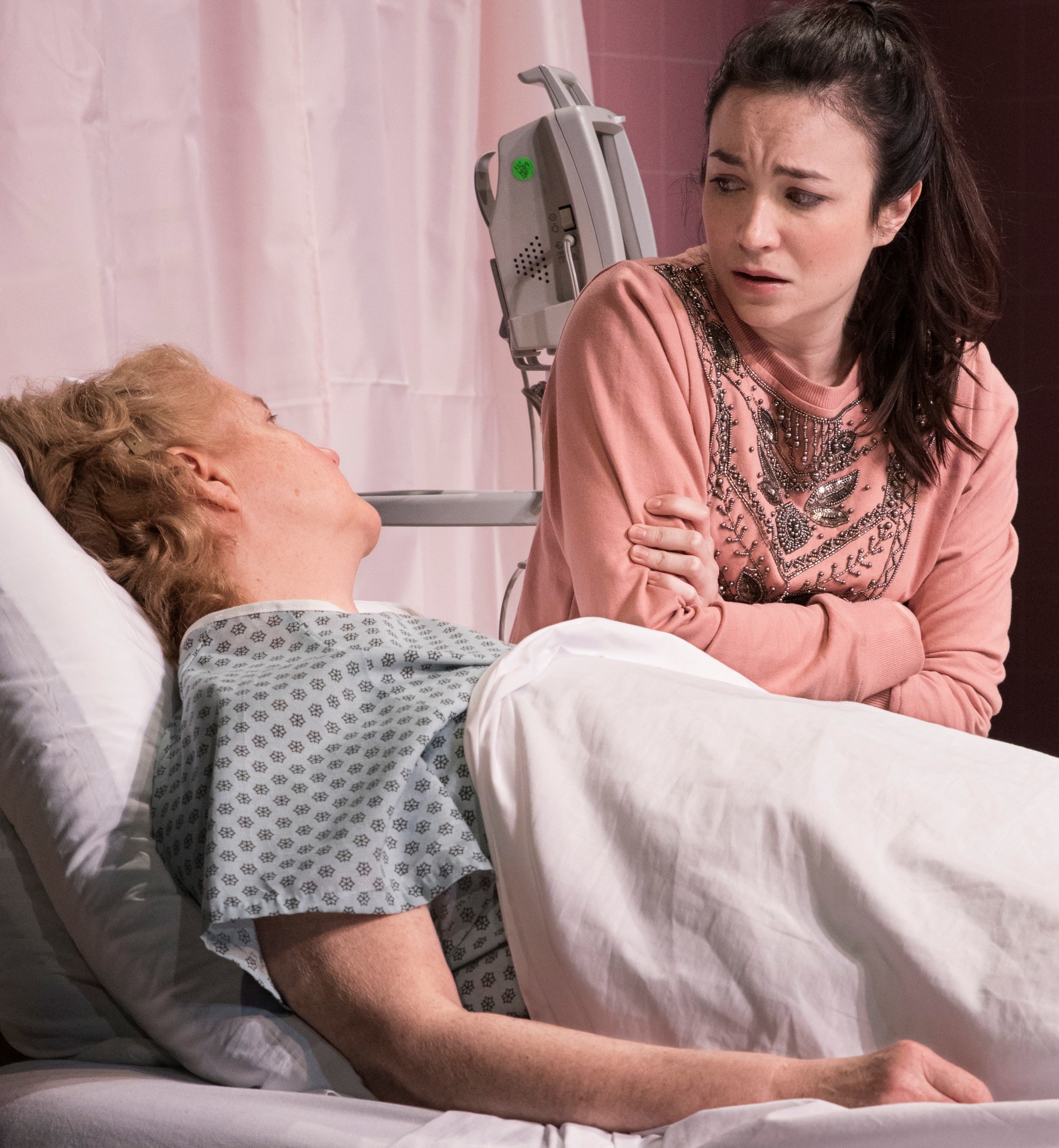Jackie Sibblies Drury is not content to let audiences just watch her plays; she wants to make them conscious of how and why they are watching. In Fairview, her 2018 breakout, this meant disrupting a black family sitcom with tone-deaf white voices. For Drury, the mundane is anything but; it’s in banal, everyday interactions that society’s fault lines become most clearly visible, if we know how to see them.
In that sense, then, the larger-than-life Mary Seacole may seem strange subject matter for Drury’s latest play. The Scottish-Jamaican Seacole’s life covered most of the 19th century and ranged from Panama to Crimea. The business owner, healer, hotelier, and cosmopolitan Victorian hero is all but unknown in the U.S., but Marys Seacole, as the title implies, is more about the everyday heroics expected of black women than about singular hero worship.
Marceline Hugot (left) and Ismenia Mendes as an aging woman and her granddaughter in Marys Seacole. Top, from left: Mendes, Quincy Tyler Bernstine, Karen Kandel, and Lucy Taylor in the 19th century.
Quincy Tyler Bernstine is remarkable as Mary, both the historical nurse on the battlefield and a Bluetooth-headset-wearing modern incarnation, also a caregiver but minus the glory. She and Mamie (Gabby Beans) work at a senior care center where the patients’ children act concerned for their parents until there is a mess to clean up. The play centers on acts of care-giving between the black and white characters, but that care always goes in one direction, and it’s not hard to guess which direction that is.
Despite a flood of biographical information in the protracted opening monologue, Bernstine’s Mary is an enigma, endlessly attentive but never revealing too much of her interior, perhaps a defense against racist women like Florence Nightingale, who refuses Mary’s help in the Crimean War based solely on her skin color.
However, Drury’s view of race is not cut and dried. Mary is mixed-race, and lords that over characters of lesser social standing: “Many people have also traced to my fair Scotch blood that energy and activity which are not always found in the Creole race; an energy and vivacity that have caused me to always be up and doing.”
Drury has named all characters as variants on “Mary”; she is Everywoman, but perhaps not “every woman,” as in the familiar Whitney Houston anthem that is heard throughout the play. From awkward playground interactions to the aftermath of battle, Drury makes clear the toll that centuries of servitude, whether through slavery or marginalization, has had on black women. Mary and Mamie, past and present, have to prove the worth daily that is taken for granted in their white counterparts, played with varying degrees of grating entitlement by Marceline Hugot, Ismenia Mendes, and Lucy Taylor. Karen Kandel rounds out the cast as Duppy Mary, gliding almost wordlessly through the play.
Bernstine and Kandel contemplate the cost of caregiving. Photographs by Julieta Cervantes.
Director Lileana Blain-Cruz leads an all-female design team: Mariana Sanchez (sets), Kaye Voice (costumes), Jiyoun Chang (lights), and Palmer Hefferan (sound). Though the flamingo-pink tile walls of Sanchez’s set evoke the hospitals and other non-places where many black women carry out their often invisible labor, under Blain-Cruz’s direction all the elements coalesce into something even more sinister and violent as the microaggressions of the play’s first half morph into weapons of mass destruction in the second half. The different time periods and characters devolve into a phantasmagoria of light and noise before the women come together to declare as one in Mary’s patois:
I am Mary Fucking Seacole!
HA HA HA HA HA
Me.
I.
Me give power to myself.
The closing image is one of reconciliation, but as Drury’s lyrical script suggests, “There are those who comfort and those who are comforted. And then the comforters all have the same thought: I am strong, but why must I always be the strongest?”
Drury is too canny a playwright to answer that question because, as her funny, beautiful, tragic play makes clear, she shouldn’t have to.
Jackie Sibblies Drury’s Marys Seacole plays at Lincoln Center’s Claire Tow Theater, on the roof of the Vivian Beaumont Theater (150 West 65th St. between Broadway and Amsterdam Ave.) through April 7. Evening performances are at 7 p.m. on Wednesday through Monday; matinees are at 2 p.m. Saturday and Sunday. Tickets are available at Telecharge.com or lct.org.





